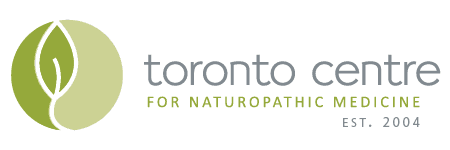Allergies
Allergies are well-managed using naturopathic medicine.
Your immune system produces substances called antibodies, which identify harmful substances in your body for “neutralization”. Allergy symptoms occur when antibodies are released in response to benign substances (e,g., pollen, pet dander). Histamine is the main chemical your body produces that causes allergy symptoms.
Common triggers of allergic reactions include airborne substances (e.g., pollens, animal dander, dust mites, mold), foods (e.g., peanuts, tree nuts, wheat, soy, fish, shellfish, eggs, milk), insect stings (e.g., bee, wasp), medications (e.g., penicillin or penicillin-based antibiotics) and latex or other substances that may come in contact with your skin.
Having allergies is associated with increased risk of asthma; eczema; sinusitis; infections of the sinuses, ears or lungs; and complications such as anaphylaxis.
Seek professional healthcare if you experience symptoms you think may be caused by an allergy, especially if you notice an environmental factor that may be responsible.
Seek emergency medical care if you have a severe allergic reaction (i.e., anaphylaxis), even if symptoms improve after an epinephrine injection.
Symptoms of Allergies
Allergy symptoms can involve your airways, digestive system, sinuses or skin. Severity of symptoms varies from person to person. Possible symptoms of allergies include:
Anaphylaxis:
- Airway swelling (obstructed breathing)
- Severe shortness of breath
- Nausea and vomiting
- Lightheadedness
- Loss of consciousness
- Rapid, weak pulse
- Skin rash
- Congestion
- Itchy, runny nose
- Itchy, watery or swollen eyes
- Itchy skin
- Red skin
- Flaking or peeling skin
- Tingling mouth
- Swelling of the lips, tongue, face or throat
- Hives
- Anaphylaxis
Insect sting allergy:
- A large area of swelling (edema) at the sting site
- Itching or hives over your entire body
- Cough, chest tightness, wheezing or shortness of breath
- Anaphylaxis
Drug allergy:
- Hives, rash or itchy skin
- Facial swelling
- Wheezing
- Anaphylaxis
Treatment of Allergies at Toronto Centre for Naturopathic Medicine
At Toronto Centre for Naturopathic Medicine, the goals of allergy treatment are to identify allergy triggers, reduce intensity and frequency of allergic episodes and manage associated health conditions and side effects of conventional allergy medications.
Conventional treatment for allergies may include a lifestyle modification (allergen avoidance) and variety of medications to reduce your immune reaction and decrease symptoms. Medications prescribed include over-the-counter or prescription medications, including oral medications, nasal sprays and eye drops depending on the nature of your allergy. Common allergy medications include corticosteroids, antihistamines, decongestants, cromolyn sodium and leukotriene modifiers. Immunotherapy may be used for severe allergies or allergies that do not respond to other treatments. These treatments may have short- or long-term side effects.
For this reason, you may choose to try natural treatment to possibly avoid use of conventional medications, or together with conventional medications in order to decrease dosages of conventional medications required to manage your allergy.
Naturopathic treatment of any chronic health concern must be recognized as a process that involves:
- Identifying specific treatment goals
- Development by your naturopathic doctor, of a thorough understanding of all factors affecting your health, including physical, psychological, emotional and lifestyle factors
- Development of a comprehensive treatment plan
- Implementation and maintenance of that plan through periodic monitoring and adjustment
At Toronto Centre for Naturopathic Medicine, a typical approach to treating allergies may be to:
- Identify, and if possible eliminate allergy triggers (e.g., foods, pollens, etc.) using a supervised food elimination and challenge protocol or laboratory testing
- Decrease symptom severity using botanical (herbal) medicines and nutritional supplements
- Prevent recurrence by decreasing your reactivity to triggers using acupuncture or homeopathic medicines
- Resolve or manage associated health conditions (e.g., asthma, eczema)
Where appropriate, a number of therapeutic options are available, to be used alone, or more often in a complementary fashion, including:
- Nutritional counseling
- Nutritional supplements
- Metabolic detoxification protocols
- Botanical (herbal) medicines
- Acupuncture
- Homeopathy
- Bowen Therapy
- Suikodo™
- Hydrotherapy
- Exercise prescription
- Relaxation (meditation) training
- Lifestyle medicine and counseling
Treatments provided by naturopathic doctors are covered by most extended healthcare plans.
References
Allergies [Internet]. Mayo Foundation for Medical Education and Research; [cited 2010 Jan 9]. Available from: http://www.mayoclinic.com/health/allergies/DS01118.


